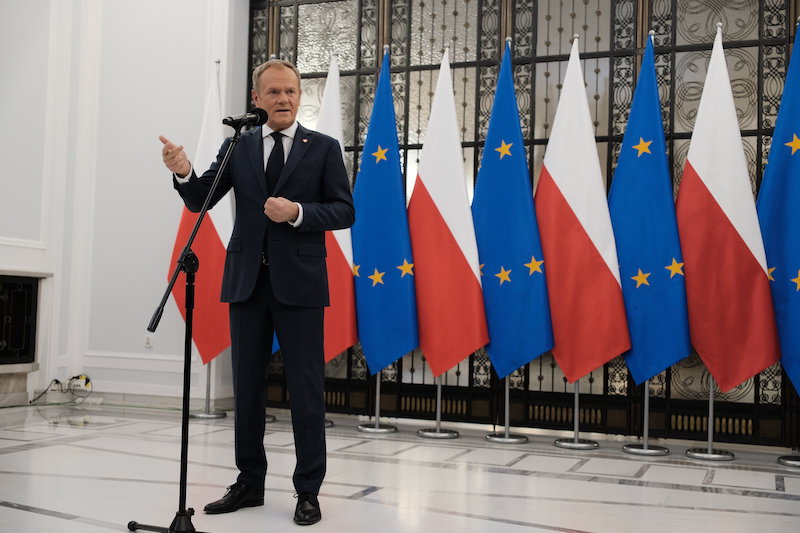“Go to Berlin!” shouted Law and Justice (PiS) MPs when Donald Tusk, the future prime minister of Poland, appeared in the Polish parliament this summer. The narrative that the opposition leader was “in the pocket of Brussels” and pursuing anti-Polish interests permeated the election campaign in October 2023.
The PiS propaganda suggested that the opposition’s win would result in Poland losing its sovereignty. The Poles, strongly in favour of EU membership, didn’t buy it. Moreover, the European Commission has already announced it will unblock billions for Poland from its Recovery and Resilience Funds this year.
This money had been frozen because the nationalist-conservative Law and Justice (PiS) government would not withdraw its widely criticised justice reform. In Tusk’s case, his visit to Brussels and announcement that he would shelve this reform were enough. Tusk, while not yet prime minister, already has a major success to his credit, that neither the PiS nor the outgoing government of Mateusz Morawiecki can boast about.
The PiS government’s anti-EU policy was primarily intended to dampen criticism of Brussels at home because of the government’s authoritarian inclinations. Over the past years, Morawiecki’s government took a drastic turn to the right and Poland became a Trojan horse of extremist ideas in the EU. Neither Warsaw nor the Poles have benefited in any tangible way from this.
However, by stirring up conflict between the European Union and Poland, the Morawiecki government was fostering the interests of the Russians, who were seeking to weaken the bloc. Signs are multiplying among opposition figures and journalists that some PiS politicians were aware of this, and may have openly favoured Russia. These links should be investigated by the politicians who are about to take power very soon.






